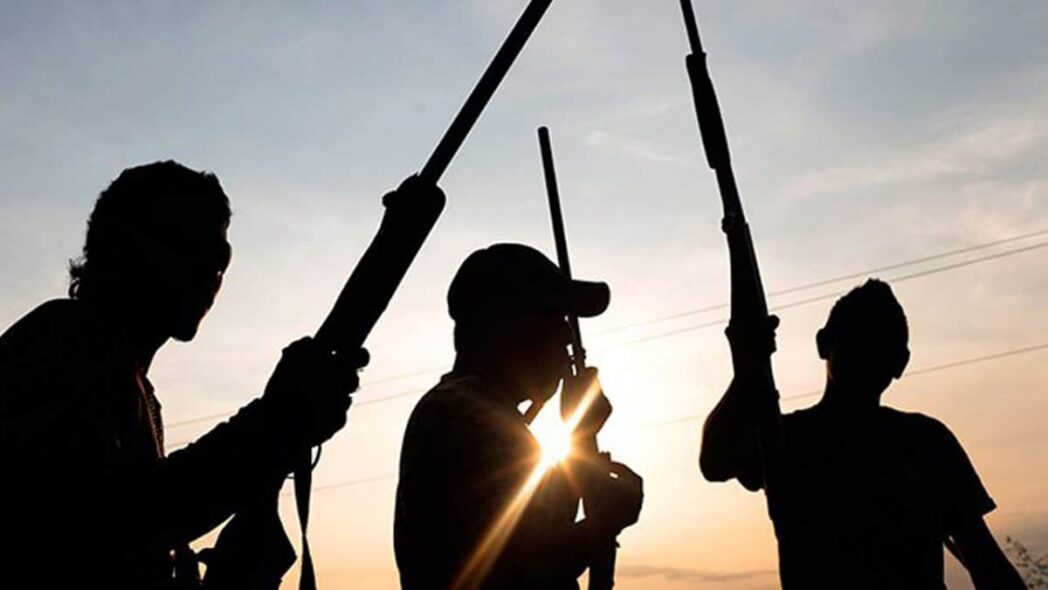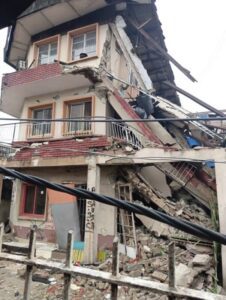
Bloodshed in Plateau: Who’s pulling the strings of chaos?
The recent brutal attacks in Bokkos Local Government Area (LGA) of Plateau State, which left at least 52 people dead and many others injured, are a stark reminder of the deteriorating security situation in Nigeria.
These senseless killings unprovoked and systematic raise serious concerns about the safety of ordinary citizens, especially in vulnerable rural communities in the northern region.
The massacre, which targeted five villages in Bokkos, is the latest episode in a continuing cycle of violence that has plagued Plateau State and other parts of Northern Nigeria for years.
The attacks, which occurred on April 2, 2025, have shocked the nation. Armed assailants stormed the villages, killing indiscriminately and forcing many to flee their homes in search of safety.
According to reports, the death toll has continued to rise as search operations continue, with many still missing. In the face of such horrific violence, the emotional and psychological toll on survivors cannot be overstated. The grief of those who have lost loved ones, homes, and livelihoods is immeasurable.
This tragedy is not just an isolated incident, it is part of a disturbing pattern of violence that has claimed countless lives across the country in recent years. And it must not be allowed to continue.
One of the most alarming aspects of the attacks in Plateau is the apparent lack of provocation.
Unlike previous incidents where conflicts over land, cattle rustling, or farming disputes played a role in sparking violence, this attack appears to have been executed with no direct cause.
This raises the troubling possibility that the perpetrators were driven by other motivations, perhaps the pursuit of chaos, instability, or even political or economic gain. There are suspicions that criminal groups, who thrive in times of insecurity, may have orchestrated these attacks to destabilise the region.
The peace that Plateau State had long enjoyed is now under threat, and the question is: who benefits from such violence, and what is being done to halt it?
It is important to acknowledge the swift response of the Plateau State government and the security forces. The military’s engagement with the attackers has led to the recovery of weapons and motorcycles, and several arrests have been made.
However, these actions, while commendable, do not fully address the root causes of the violence. There must be a comprehensive and sustained effort to tackle the larger issues that have contributed to the insecurity in Plateau and Northern Nigeria as a whole.
One critical measure that must be seriously considered is the establishment of state police.
While the federal government has made efforts to combat insecurity through national agencies, the diverse and localised nature of violence in Nigeria calls for more decentralized and community-based security measures. State police would allow for a more targeted approach to security, enabling state governments and local communities to take charge of their own safety.
The calls for state police have grown louder in recent years, and the Plateau killings further reveal the urgency of this reform. It is crucial that the National Assembly expedites action on this front to empower states to better protect their citizens.
In addition to security reforms, there is also a need for greater investment in addressing the underlying socio-economic and political factors that fuel violence in the region.
Much of the unrest in the north can be traced to poverty, unemployment, and the lack of access to education and basic services.
These conditions create an environment where criminal elements thrive, exploiting the vulnerabilities of marginalised communities. Tackling these root causes is not only an investment in peace but also in the long-term stability of the country. Without addressing these issues, no amount of military intervention or security measures will bring about lasting peace.
Religious and community leaders also have a critical role to play in preventing further violence. The Northern Christian Association (CAN) has condemned the killings and expressed concern over the culture of violence that continues to claim innocent lives.
Their call for unity, tolerance, and peace is important, but it must be matched by concrete actions. Religious leaders must use their platforms to preach peace and coexistence, urging their followers to reject violence and work together to rebuild their communities.
The traditional leaders must equally step up to foster dialogue and understanding among different ethnic and religious groups, ensuring that divisions do not escalate into conflict.
Moreover, there is an urgent need for better coordination between the federal government, state authorities, and local communities.
The lack of communication and collaboration between these groups has often worsened security challenges. The recent Plateau attacks should serve as a wake-up call for better coordination in intelligence sharing, crisis response, and long-term planning for peacebuilding.
Federal and state governments must work together to ensure that security forces have the resources and support they need to protect vulnerable communities.
The role of local communities cannot be understated. In times of crisis, communities often become the first responders. The Plateau Youth Council, in its response to the killings, has called for calm and cooperation with security agencies.
This kind of grassroots leadership is vital in the fight against insecurity. Communities must be empowered to take an active role in reporting suspicious activities and working alongside law enforcement to prevent further violence.
Community-driven security initiatives, such as neighbourhood watch programs and conflict resolution mechanisms, can play an important role in building resilience and reducing the risk of future attacks.
The international community also has a part to play. Nigeria is not alone in facing the challenge of violent extremism and armed conflict. Global partnerships can help provide technical assistance, training, and financial resources to enhance Nigeria’s security capacity.
However, external support should not be seen as a substitute for internal reforms. The solution to Nigeria’s security problems lies primarily in the hands of the Nigerian government and its citizens.
In the wake of the Plateau killings, the federal government must ensure that justice is served swiftly and decisively. The perpetrators of these heinous acts must face the full weight of the law.
The culture of impunity that has allowed violence to flourish in many parts of the country must end. Justice must not only be done but must also be seen to be done.
The Nigerian people deserve to live in peace, free from the constant fear of violent attacks.




